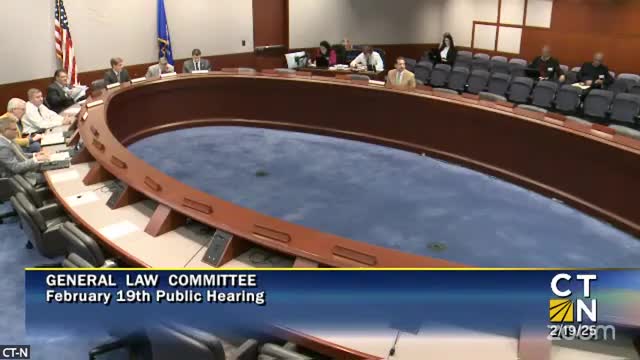Lawmakers, comptroller and advocates debate Social Equity Council reforms in public hearing
Get AI-powered insights, summaries, and transcripts
Subscribe
Summary
Lawmakers heard testimony on bills to revise the Social Equity Council’s procedures, reporting and program oversight, with the council’s new chair, the comptroller and industry groups urging clearer statutory standards, stronger financial controls and protections for social equity licensees.
Lawmakers held a public hearing on Feb. 19, 2025, on bills to change how Connecticut’s Social Equity Council operates, including House Bill 6,930 and related proposals to tighten application timelines, require strategic planning and clarify eligibility and oversight.
Supporters and critics of the council said the bills matter because they shape which entrepreneurs — especially those from communities harmed by cannabis prohibition — will be able to enter and remain in Connecticut’s legalized cannabis market.
Brandon McGee, the newly appointed chair of the Social Equity Council, told the committee the measure “makes 4, very important changes,” and summarized key goals: requiring each licensed cannabis business to keep a social equity plan in place throughout its operation; obliging equity applicants to submit annual reports on plan impact in disproportionately impacted areas; clarifying that a sale to a non‑equity buyer ends social equity status; establishing a 120‑day application timeframe for a revolving loan program; and strengthening the council’s strategic plan, ethics code and training requirements.
Comptroller Sean Scanlon, who led a post‑authorization audit of the council at the governor’s request, said his office found “significant issues with the social equity plan application process, long wait times, and a fractured working relationship between the council and the staff.” He recommended statutory changes to reduce ambiguity — including a finite list of equity goals, a written internal financial‑control policy and a community‑guided roadmap for reinvestment of appropriated funds.
Industry and advocacy groups offered mixed responses. Jennifer Fell of the Connecticut Cannabis Chamber of Commerce supported statutory clarity and urged a formal revision process so businesses can adapt when policy expectations change. Jason Teal, CEO of NOVA Farms and a social equity licensee, told the committee that uncertainty and market pressure — including competition from neighboring states and the illicit market — threaten small equity licensees’ survival and that statutory protections should outlast current leadership.
Several members of the committee said they intend to work further with the council, the comptroller’s office and industry stakeholders to draft language that achieves the bills’ goals without unintended consequences. Chairs and ranking members signaled that additional, more detailed bills will follow to implement some of the comptroller’s remaining recommendations.
The hearing included requests for detailed implementation timetables and for statutory language that limits subjective decisionmaking; several witnesses asked the legislature to enshrine program deadlines and financial controls rather than leaving them to administrative discretion.
Committee staff said they plan further drafting sessions and follow‑up hearings to reconcile competing concerns over who qualifies as an equity business, how program outcomes will be measured, and how reinvestment dollars will be guided by community feedback.
The panel did not take any formal votes during the hearing. Sponsors said they will circulate revised draft language for subsequent committee review.
